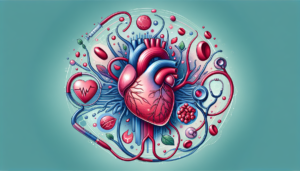The Role of Probiotics in Maintaining Digestive Health
Understanding Probiotics in Digestive Health
Probiotics are live microorganisms that, when administered in adequate amounts, confer a health benefit on the host. The most common types of probiotics belong to two groups: Lactobacillus and Bifidobacterium. These beneficial bacteria reside predominantly in the gut and play a crucial role in maintaining digestive health.
The Gut Microbiome
The gut microbiome is a complex ecosystem of trillions of microorganisms, including bacteria, fungi, and viruses that live primarily in the intestines. This microbiome is essential for digestion and overall health. It influences a variety of bodily functions, including nutrient absorption, immune function, and even mood regulation. Probiotics make up a small fraction of these gut microbes but have a significant impact on the overall health of the digestive system.
How Probiotics Work
Probiotics exert their beneficial effects through several mechanisms:
-
Competitive Exclusion: Probiotics occupy space and resources in the gut, making it challenging for harmful bacteria to establish and proliferate. By competing directly with these pathogens, probiotics help maintain a balanced microbiome.
-
Production of Antimicrobial Substances: Many probiotics produce substances such as acids, bacteriocins, and hydrogen peroxide, which inhibit the growth of harmful bacteria. For example, Lactobacillus species can lower gut pH, creating an unfavorable environment for pathogens.
-
Immune System Modulation: Probiotics can enhance the immune response by promoting the production of antibodies and stimulating the activity of immune cells. This involvement helps the body fight off infections and reduces inflammation in the gut.
-
Barrier Function Improvement: Probiotics help strengthen the gut lining, which can reduce intestinal permeability or "leaky gut." A well-functioning gut barrier prevents harmful substances from entering the bloodstream, reducing systemic inflammation.
- Metabolism of Dietary Fiber: Probiotics can break down complex carbohydrates in foods, converting them into short-chain fatty acids (SCFAs). These SCFAs, such as butyrate, serve as an energy source for colon cells and have anti-inflammatory properties.
Types of Probiotics
Various strains of probiotics are utilized to address specific digestive health issues:
-
Lactobacillus: Frequently found in yogurt and fermented foods, Lactobacillus is beneficial for lactose digestion and can alleviate symptoms of irritable bowel syndrome (IBS).
-
Bifidobacterium: This strain is prevalent in the intestines of infants. It supports the immune system and has been shown to reduce symptoms of constipation and diarrhea.
-
Saccharomyces boulardii: A beneficial yeast, often used in treating antibiotic-associated diarrhea and preventing traveler’s diarrhea.
- Streptococcus thermophilus: Commonly used in yogurt production, this strain helps improve lactose digestion and enhance the gut’s microbial composition.
Probiotics and Digestive Disorders
1. Irritable Bowel Syndrome (IBS)
IBS is a functional gastrointestinal disorder characterized by a group of symptoms, including abdominal pain, bloating, gas, and diarrhea or constipation. Research indicates that probiotics can alleviate these symptoms. Strains such as Lactobacillus and Bifidobacterium have been found effective in reducing IBS severity and improving quality of life.
2. Diarrhea
Probiotics are effective in treating various types of diarrhea, including infectious diarrhea, antibiotic-associated diarrhea, and traveler’s diarrhea. Studies show that specific probiotic strains such as Lactobacillus rhamnosus and Saccharomyces boulardii can significantly reduce the duration and severity of diarrhea episodes.
3. Constipation
Chronic constipation can stem from various causes, including dietary factors and gut dysbiosis. Probiotics can improve stool frequency and consistency. A combination of Bifidobacterium and Lactobacillus strains has been associated with enhanced bowel movements and reduced discomfort.
4. Clostridium difficile Infection
Clostridium difficile (C. diff) infections can occur following antibiotic treatment, leading to severe diarrhea and colitis. Probiotics, particularly Saccharomyces boulardii, can help prevent the recurrence of C. diff infections by restoring gut microbiota balance and enhancing gut barrier function.
5. Inflammatory Bowel Disease (IBD)
IBD encompasses conditions like Crohn’s disease and ulcerative colitis. While more research is needed, certain probiotics have shown promise in reducing inflammation and maintaining remission in IBD patients. Specific strains, including E. coli Nissle 1917 and Lactobacillus rhamnosus GG, may offer therapeutic benefits.
Incorporating Probiotics into Your Diet
-
Fermented Foods: Incorporating fermented foods into your diet is an excellent way to get probiotics. Foods like yogurt, kefir, sauerkraut, kimchi, miso, and tempeh are rich in live cultures.
-
Probiotic Supplements: If fermented foods are not a reliable source, considering probiotic supplements is an option. Always consult with a healthcare provider to choose the appropriate strains for your needs and determine the right dosage.
- Prebiotics vs. Probiotics: It’s essential to distinguish between prebiotics and probiotics. Prebiotics are non-digestible fibers that feed and promote the growth of beneficial bacteria in the gut. Foods rich in prebiotics include garlic, onions, asparagus, and bananas.
Potential Risks and Side Effects
While probiotics are generally regarded as safe for most people, they can cause mild side effects, such as bloating or gas, especially when initially introduced. In rare cases, individuals with compromised immune systems or underlying health conditions may experience more severe side effects. It’s advisable to consult a healthcare professional, particularly for high-risk individuals, before starting any probiotic regimen.
Research and Future Directions
Ongoing research is revealing more about the complex interactions between probiotics and the gut microbiome. Future studies aim to uncover how personalized probiotic treatments can provide tailored solutions for specific digestive health issues. Investigating the impact of probiotics on mental health, weight management, and even metabolic disorders is gaining traction, hinting at the profound role of gut health in overall well-being.
Conclusion
Probiotics represent a promising avenue for enhancing digestive health, with applications spanning various gastrointestinal disorders. By balancing gut microbiota, modulating immune responses, and protecting gut barrier functions, probiotics can play a pivotal role in maintaining a healthy digestive system. Incorporating natural dietary sources and potentially beneficial supplements, individuals can take proactive steps toward digestive wellness, paving the way for a healthier future.








